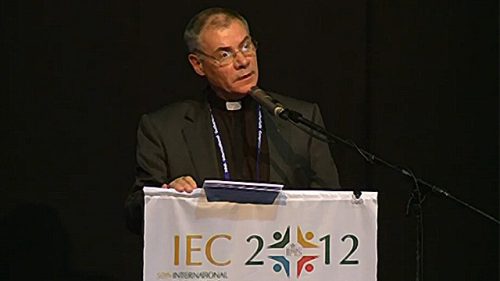Faith groups ranked poorly after the public were polled regarding the sector demonstrating the best leadership in Ireland.
Leadership
LIFT Ireland – an initiative to develop the level of leadership nationwide – polled 1,000 members of the public on their attitudes towards leadership standards and asked them to rank the sectors and professions they believed demonstrated good leadership over the past year.
Healthcare professionals were perceived as having demonstrated the greatest levels of solid leadership, while faith-based groups received the lowest rating, with 4% of respondents stating they demonstrated good leadership. This sat just below politicians, with 5% of respondents considering their leadership to be adequate.
Speaking to The Irish Catholic, priest-theologian Fr Eugene Duffy of Mary Immaculate College reacted to the findings, outlining poor leadership, an aging Church profile, and a lack of faith formation as problems contributing to the Church’s weakened leadership in Irish society.
Community life
On a local level, he suggested that the GAA has replaced the Church as the centre of community life, particularly in rural Ireland.
“I’m struck by the fact that I think its role has been replaced by the GAA in many situations. While a lot of good work was done by voluntary groups obviously, Church-based groups as such, during the pandemic, I would think the GAA did tremendous work in the kind of social outreach,” Dr Duffy said.
Highlighted
Dr Duffy also highlighted potential paths forward, including greater risk-taking in decision making and an emphasis on faith formation.
“I think one of the issues we have to seriously address is the issue of faith formation. That’s an issue. I think we have, by the appointment of bishops generally, we’ve got poor leadership,” Dr Duffy said.
“People are not appointed to those posts by virtue of their capacity for leadership, au contraire. I think we are genuinely, not just being cynical in saying that, I think we are reaping the harvest of that. Safe people, who are not going to disturb the status quo and therefore aren’t going to generate initiatives that are imaginative, creative, they’re not risk-takers and we’ll have to be prepared to take risks.”


 Rev. Dr. Eugene Duffy of Mary Immaculate College, Limerick.
Rev. Dr. Eugene Duffy of Mary Immaculate College, Limerick. 